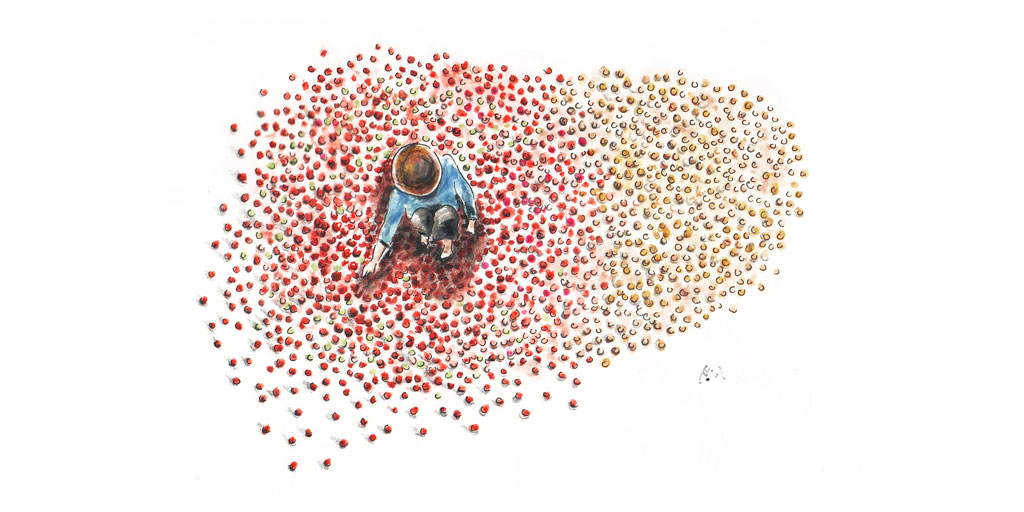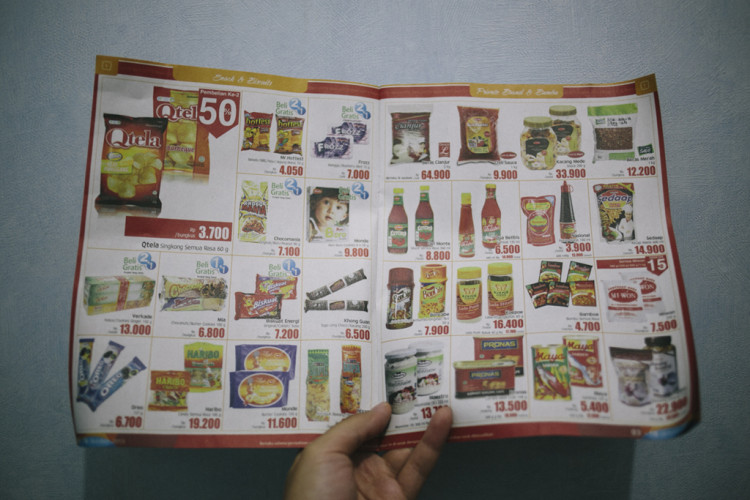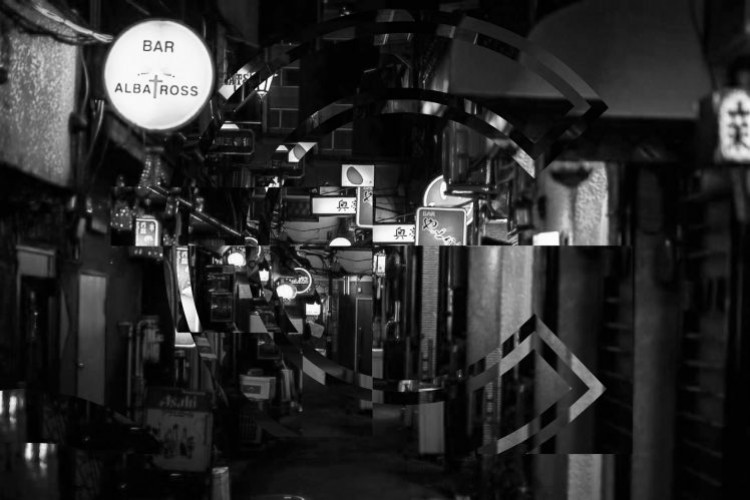
I decided not to write ornately about the taste of Indonesian coffee, or knick knacks how to brew a perfect cup of coffee or why being a barista is much more cooler now than your ordinary internet cafe operator. I believe you all can find those information from somewhere else in this worldweb galaxy. But a peripheral juxtaposition of our coffee farmers itself and their knowledge of processing coffee beans has guided me to a memorable and inspiring voyage into Indonesian coffee and beyond, which has changed my perspective not only about coffee, but also about being a gourmand!
It all started during my 2010 first gastronomy trip to Vietnam with several young chefs and an ardent foodie. I was so mesmerized by the utterly robust flavors of ca phe sua da (Vietnamese iced coffee with condensed milk). Being smitten by their coffee culture, I finally identified that most of Vietnam coffee beans are robusta variety with a strong French influence in coffee processing techniques. Lately I discovered that Vietnam massive coffee production was just initiated on 1995 after America normalized their trade relations and now Vietnam has become the second largest coffee beans exporter in the world with a total nearly exceeded 1.200.000 tons (source : www.ico.org, 2011). Meanwhile, Indonesia, with an approximate total of land area 6 times larger than Vietnam, can only produce 495.000 tons of coffee beans, making it the fourth largest exporter of coffee beans in the world (source : www.ico.org, 2011). With the massive total land area, coffee production in Indonesia can be extensively improved. Indonesia produces not only robusta coffee, but also different varieties of arabica coffee from different regions with distinctive flavors and body characters. So far, coffee lovers recognize Indonesian Kopi Luwak (Chivet Coffee) as the most expensive coffee in the world because of its palatable taste, but many do not know that Indonesia is also a perfect ground for maragogype, peaberry, excelsa, and many rare coffee variety/species in the world.
Yet, those are only figure numbers and numbers are determined by many factors, such as supply demand decree and agricultural productivity. But a self reflective contemplation was started by me after several regular visits to Vietnam. Why can’t Indonesia be at least second to Brazil in terms of coffee beans exporter? Why are my local coffee farmers always be the object of coffee trade not be the subject who holds supreme power? What is the real main problem? Should I blame the government for not taking a good care of my dearest coffee farmer friends?
I am not a coffee connoisseur. I don’t even drink coffee every day. But from my intimate network with many culinary experts and coffee professionals, I realize that many coffee professionals are well acquainted with the coffee beans processing, they learn how to roast it in different levels, blend it with different varieties to make richer flavors, and serve it at the upscale cafes in urban cities with different brewing techniques, some of them even hold a prestigious Q Grader certificate, but how about coffee farmers? Do they have access to obtain such knowledge?
At first I only thought that most of our coffee farmers are dumbo to the max! Yes, they should be getting more lessons on coffee processing, learn how to roast, brew, serve, and also to taste. But I WAS COMPLETELY WRONG! When I decided to make a visit to cluster of coffee farmers in Bondowoso and Jember, East Java through a generous network of ICCRI (yes, we do have coffee research institute), I completely astonished by the complexity of our farmers’ knowledge in coffee plantation, the convoluted supply chain network, and on the top of that, the obscure of our own agriculture system and regulations. Indonesian farmers are probably the most hardworking human creatures ever alive in this nation, and what do they get for working so hard? IDR 8.000/kg for arabica green cherries bought by first hand of middlemen. That happened before the farmers know the processing technique to improve the quality.
Nevertheless, I am also so very proud of the farmers, they hardly ever complain about life, they are eager to learn more technique to increase their product quality, which through a collaboration initiative of respective research institute, local government, our central bank, and international buyers, now coffee farmers in those area are capable to export their improved quality of coffee beans directly to Europe with an unbelievable price: IDR 37.000/kg for arabica green beans grade A with wet processing technique!
When I came back to Jakarta, I swiftly reflected my behaviors on consuming foods and beverages. What I have done to give more appreciation to all food producers? Meanwhile, most of us adore chefs, cool designers, or restaurateurs rather than farmers, breeders, or fishermen. We forget that without them, none of the most delectable Aceh Gayo Arabica Chivet coffee siphon brewed or Peaberry Papua Medium Dark Roast pour over brewed can be savored by all of us.
That’s why farmers matter more to me right now. They teach me how to be a real gourmand, not only a selfish foodie. It is not only a matter of good taste of food or not anymore, because it is too personal. But more likely you understand how the food products are planted, nurtured, harvested, and treated with full of respect to mother earth so they can produce distinguished flavors for us to indulge. So when you declare yourself a coffee gourmand, just ask a simple question to yourself: have you put the highest respect to the coffee farmers before you sip your brewed coffee?











